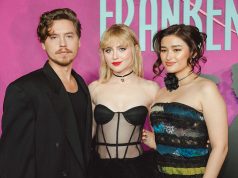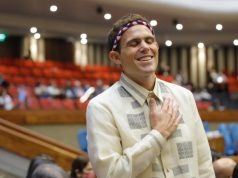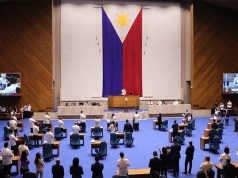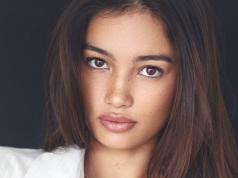
Kelsey Merritt becoming the first Filipino model of Victoria Secret is being questioned on social media over her national identity because of her “mestiza” features.
To be part of the much-anticipated fashion show is a dream come true for Merritt and her excitement could be felt when she posted about it on Instagram.
“What an honor it is to be the first Filipino to walk in the Victoria’s Secret Fashion Show 2018!!! Ahhhhhh I can’t believe this!!” the Filipino-American model said.
She made known her ambition to be a Victoria Secret model via Twitter in 2017. She soon made the cut and started working with Victoria’s Secret in May.
Remember this tweet? Well… I‘m shooting with Victoria’s Secret next week!!!!! I cannot contain my happiness???❤️ All for You!!!! https://t.co/vsCCOOGQ78
— Kelsey Merritt (@kelsmerritt) May 11, 2018
Some Filipinos were quick to criticize Merritt’s features perceived to be more American or European rather than Filipino.
Who are ‘Filipinos’?
It would be a mistake to equate one person’s national identity simply by her ethnicity—that is her physical and cultural attributes. Ethnicity is just one aspect of national identity, which could be based on citizenship or nationality.
Nationality is acquired by birth, inheritance or ancestry. A person cannot be a national of more than one country. Citizenship, meanwhile, is more specific as it affords him rights and responsibilities under a set of laws. It can be changed by marriage or naturalization, or acquired as a second status.
In many cases, being a national makes one a citizen. In some countries like Mexico, however, children under 18 years of age are nationals but are not yet considered citizens with full voting rights.
In Section 1, Article IV of the Constitution, Filipino citizens are the following:
- Those who are citizens of the Philippines at the time of the adoption of this Constitution;
- Those whose fathers or mothers are citizens of the Philippines;
- Those born before January 17, 1973, of Filipino mothers, who elect Philippine citizenship upon reaching the age of majority; and
- Those who are naturalized in accordance with law.
It also stated in section 4 that Filipino citizens will retain his or her citizenship even if the person marries a foreigner.
Also, a child immediately inherits the citizenship of the Filipino parent, provided by the principle of jus sanguinis or the right of blood.
There’s another process of acquiring Filipino citizenship, that is, through naturalization.
A foreigner who wishes to be a Filipino must meet the criteria specifically stated under Commonwealth Act No. 473 or the Revised Naturalization Law. A foreigner therefore can be a Filipino at will, and not less of one in the eyes of the law.
Among the qualifications include having resided in the Philippines for a continued period of at least ten years and being not younger than 21 years old on the day of the hearing of his or her petition to be naturalized.
It is up to the Bureau of Immigration to hear the petition cases and provide the recognition that an applicant is a Filipino citizen.
Merritt is therefore a natural-born Filipino citizen because one of her parents is a Filipino citizen at the time of her birth.
Merritt defines her identity
In her reply to critics, the 21-year-old shared that she was born, raised and graduated in the Philippines before moving to the United States.
Pinanganak ako sa Pilipinas at lumaki ako sa Pampanga. Tinapos ko ang pagaaral ko sa Manila bago ako lumipat sa US last year. Mas pinoy pa dugo ko kesa sa mga “pure” na hindi pa nakatapak sa Pilinipas. I love my country and I’m proud of where I came from. ❤️
— Kelsey Merritt (@kelsmerritt) September 9, 2018
Merritt earned her bachelor’s degree in Communications at the Ateneo de Manila University.
When she announced her feat to model for the upcoming fashion show, there were Filipinos who pointed out that she looked more American than a Filipino.
Others responded that being born and raised here already identifies Merritt as a Filipino.
This was the similar online debate against the perceived bad casting of the ABS-CBN show “Bagani.”
The evening fantaserye drew flak for its cast of actors with Western features, mainly Liza Soberano and Enrique Gil, for Filipino native roles.
Soberano attempted to defend herself in a now-deleted tweet saying that she was raised by two Filipinos and fancies the Filipino staple sinigang.









